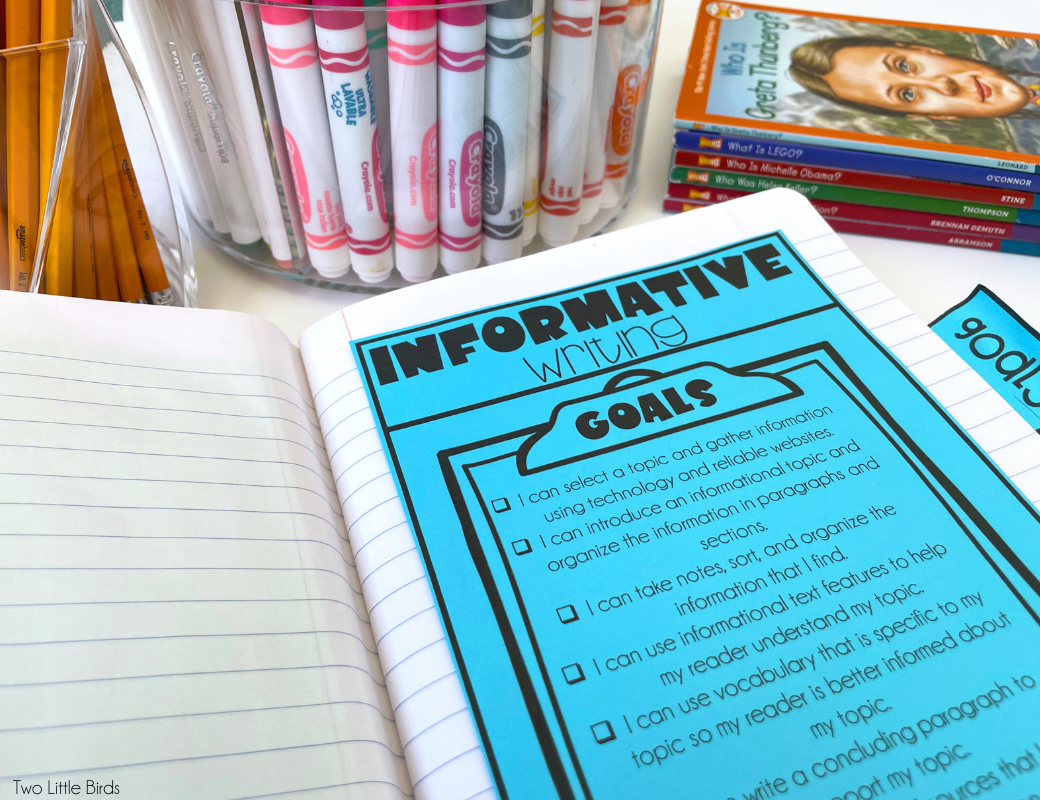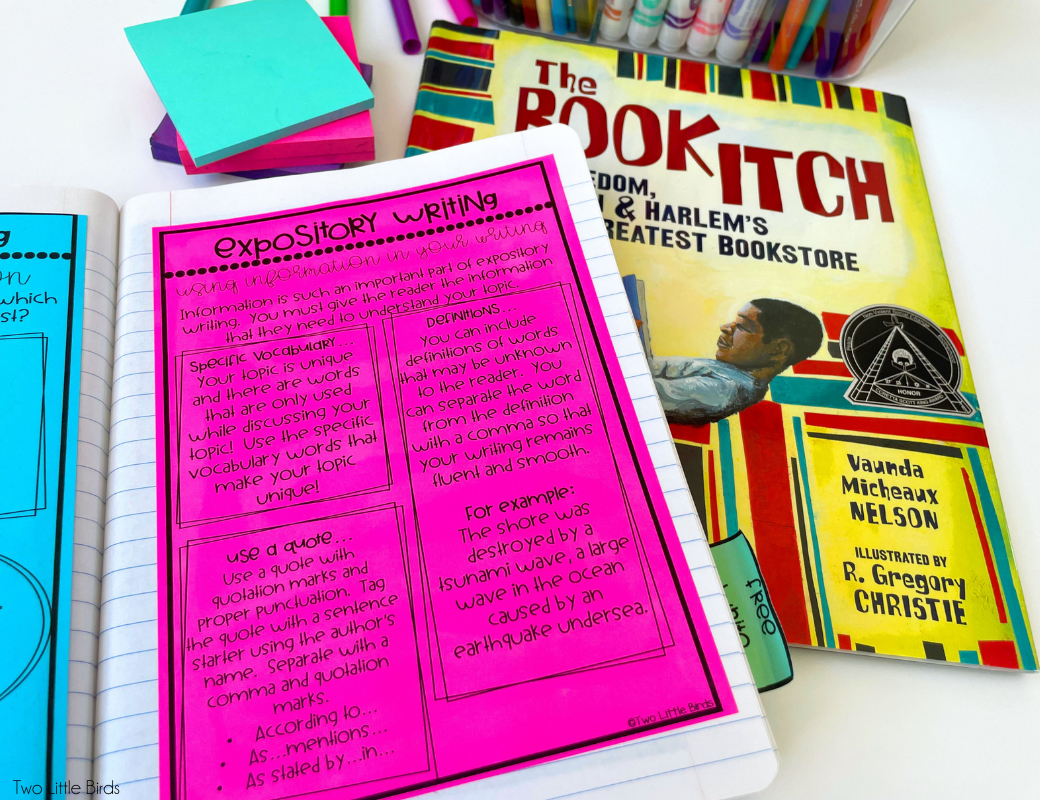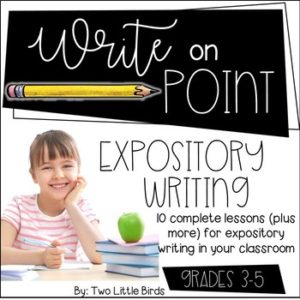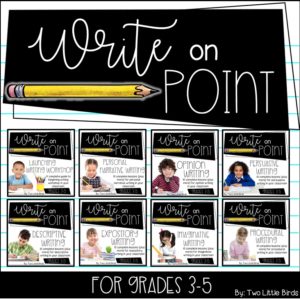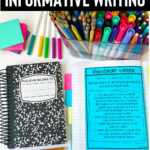The purpose of expository writing is to inform. It has facts that are supported with reasons and details, stays on topic, helps the reader understand a new topic, and adds examples to clarify. Informational writing is a genre that students are always excited about because it is not as intimidating as others can be. They get to become the “expert” on a topic by doing research and finding facts. And that is pretty exciting stuff!

Choosing a topic
You may have a set curriculum to follow for student topics. If that is so, then have your students stick to those topics! If you do not have set topics, you can choose to tie it into another subject area, give students free choice, choose a variety of topics, and have students choose…I love an old-school pick-out-of-a-hat-moment…or any way that you would like for students to arrive at their topic.
Some students will pick a topic with ease, and some will stress. Have a backup plan on hand for those that may have trouble choosing a topic. You can take a survey to find students’ interests so that you can help them choose a topic or just choose one so that students don’t feel behind.
Setting goals
Setting goals is an important part of student writing because they understand what is expected, they know the elements that should be included in their writing, and they have a clear vision of what they should be working on.
When beginning informational writing, planning is key and many times students want to get write into their writing. Setting goals sets a great foundation for all other steps of the writing process and helps students set out a clear plan for what they are writing.
Your students can set behavioral goals or strategic goals and refer back to them throughout their writing process.

Researching
Before beginning research, I love to share “The Book Itch” by Vaunda Micheaux Nelson. This is a wonderful non-fiction story to share. It shows the importance of reading and also has some history in it. At the end of the book, there is a short autobiography about the book store owner that is a good example of informational writing. There is also a bibliography page to show where the research was found. It is a great starting point for your students’ research.
Helping students navigate and learn the ins and outs of researching a topic can be really fun but also very important. You are setting a foundation and understanding in your students for the importance of searching, fact-checking, reliable sources, and more.
An important part of researching for students is to make sure that they are using a website that is easy for them to understand and that the information is relevant to their topics. It is also important to make sure that the information that they find is reliable.
What does it mean to be reliable? When you are helping students check to make sure that a source is reliable, you can check for a few things:
- You should look at the date that it was published. Something that was published 10 years ago may not be as reliable as something published this year.
- Look for other sources on the page. This shows that the information has come from other sources, not just the author’s opinions.
- Is the website mentioned by other news sources?
To help your students begin their search you can give them a list of kid-friendly search engines. Show students how to use keywords to search.
What are keywords?
Words that are specific to your topic. If you are researching snow leopards, you can type in snow leopards but you might get a lot of information. You can narrow it down and search specific topics. “Where do snow leopards live? What is a snow leopard’s life span?”
Compiling and narrowing down information from their research is hard when they find SO much interesting information. Using the goals that you set will help to keep your students’ note-taking and sorting of the information focused and on topic.
Sharing your writing
Your students have worked so hard to choose a topic, set goals, work on their goals through researching, taking notes, and writing; now it is time to share! Don’t skip this important part of the writing process, celebrating!
- Have students meet with a partner and each shares their writing
- Meet in small groups and take turns sharing
- have a signup and have students share to the class throughout the week, a few at a time
- ask other teachers if students can visit their classrooms and share with their students
- invite families and set up a “museum” and display student writing
- create a class book, printable or digital, and send it to families. If you cannot copy for each family, put it in a folder and take turns sending it home. Leave a page for families to leave comments too.
There are so many ways to celebrate students’ hard work! They will love sharing all that they learned and having a turn to be the “expert.”
Informational writing is the type of writing that we do most in everyday life; we need to write to explain ideas and information to others. These skills are not only important as we assess students in the classroom but lifelong skills that they will use for years to come.
I hope you found some tips to help you as you begin your informational writing unit. Enjoy watching your writers grow as they learn the skills that they need to be true experts of informational writing.
You can find more writing tips here:
Writing workshop tips and ideas



